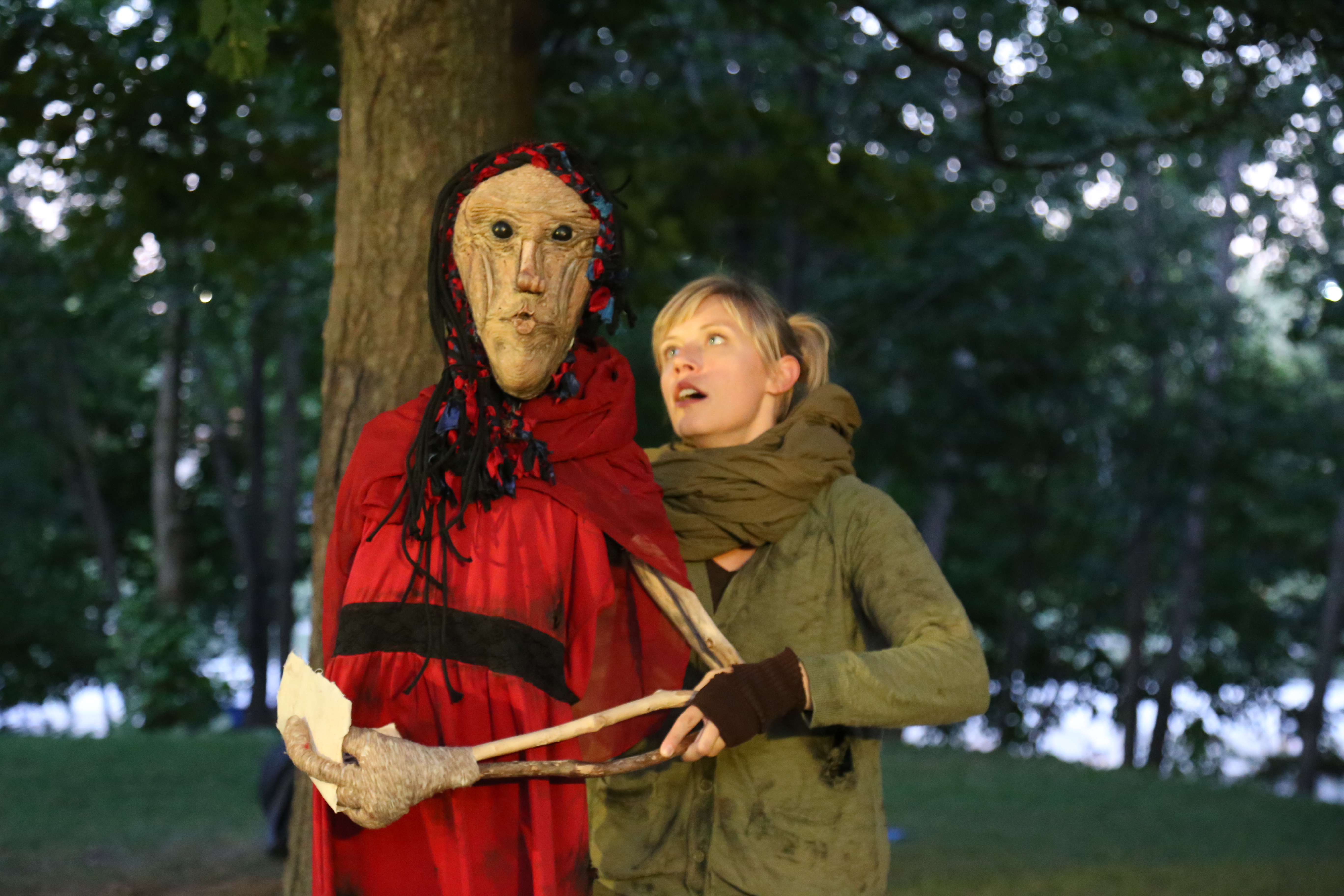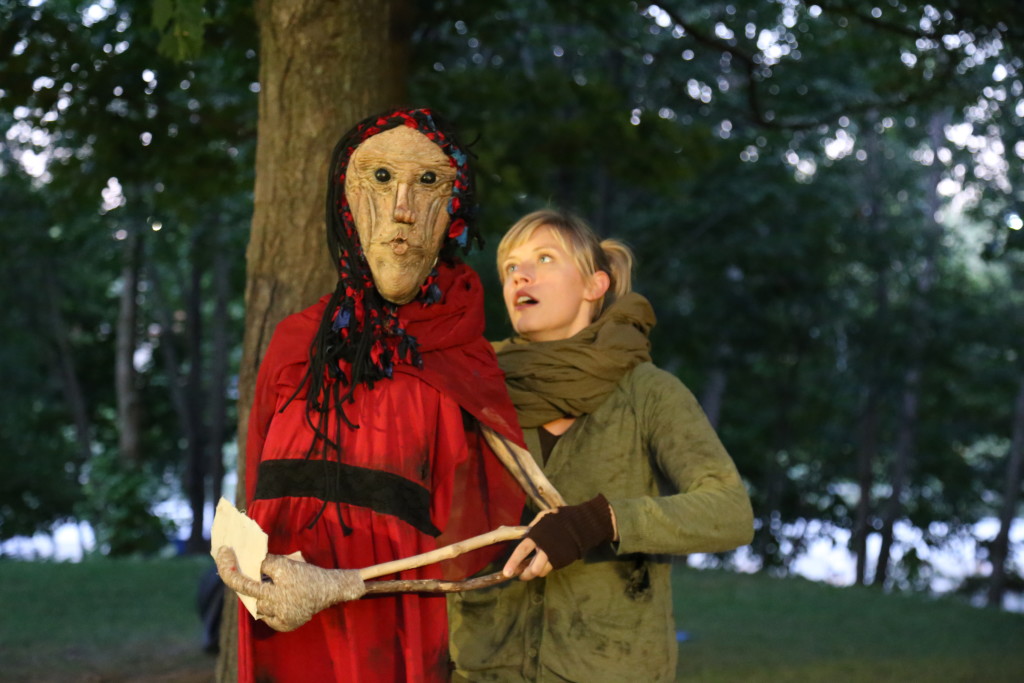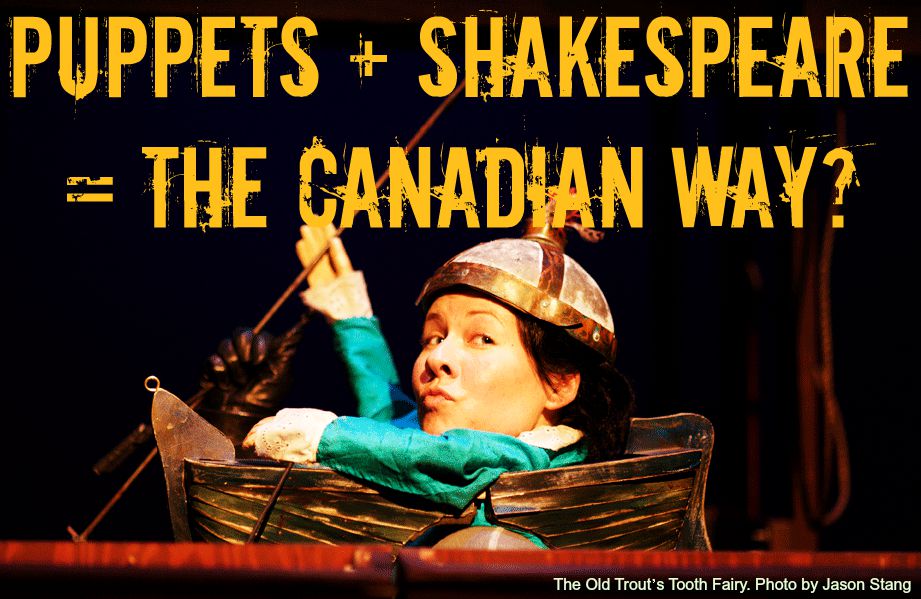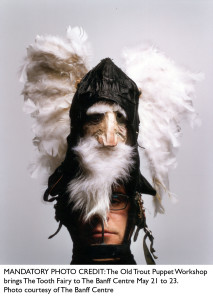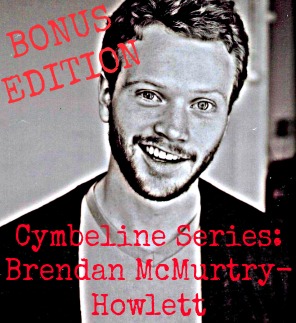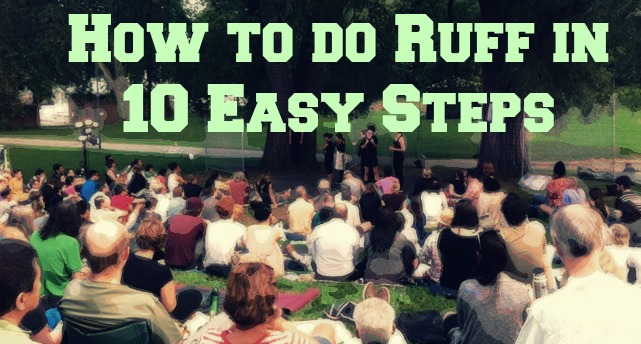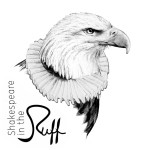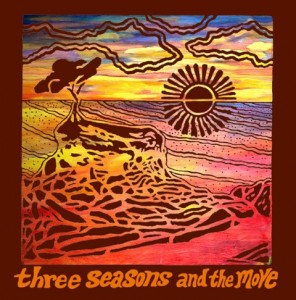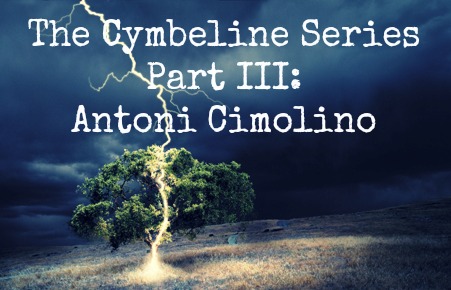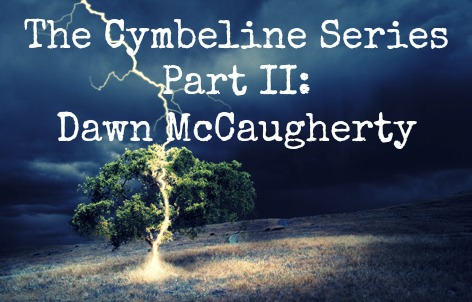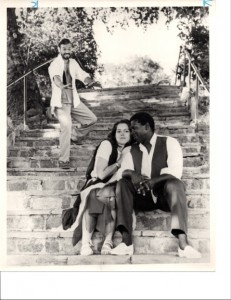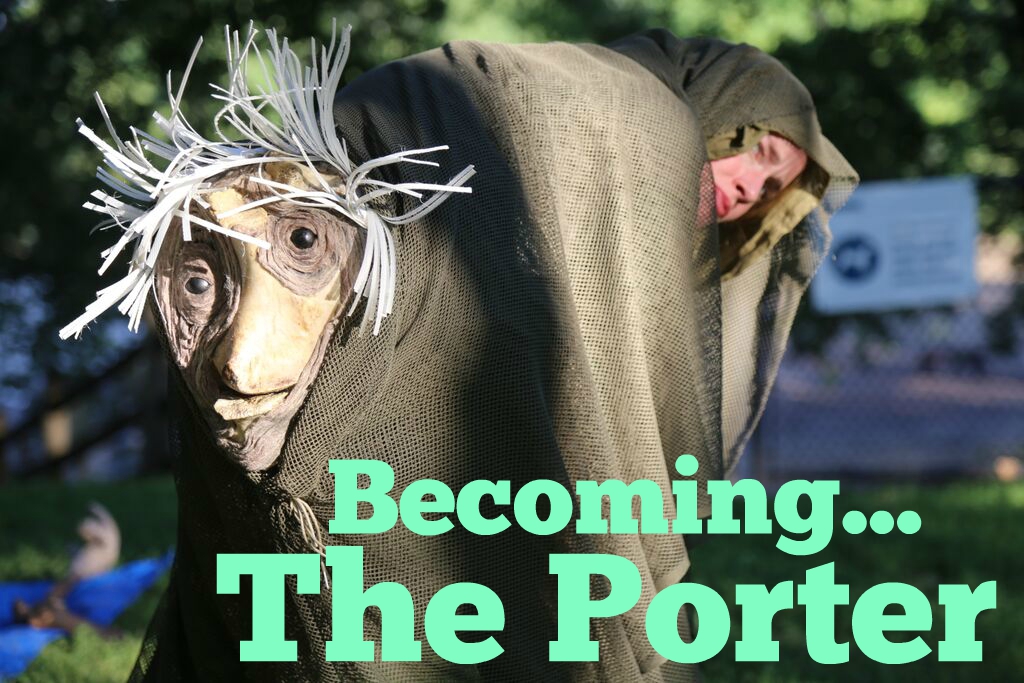
I’ve lived in fear of improv for most of my life, certainly my adult life. All my buddies are improvisors, I’ve seen hundreds of improv shows, I’ve always secretly wanted to do it, but I’ve always been paralyzed by fear. To the point, that on a regular basis, I would have improv nightmares, where I’m called onstage incorrectly to do an improv show. But then this year, I thought, enough is enough, I will conquer my fear of improv, and have been doing improv shows with Sex-T-Rex (a comedy group that I’m a member of) all year.
STEP 1:
When I heard that I’d be playing The Porter, in Shakespeare in the Ruff’s ‘Macbeth; Walking Shadows’, I was excited to get the one comedic role of the show. We were in rehearsals and I was working on getting off-book, and was pretty much there, when I received a text message from Brendan (the show’s director) and Zach (the puppet creator) saying that they were thinking of not using the text at all. I was excited about it, because doing a scene and following the beats of it, is a world I’m comfortable playing in. But when I read the text a little further it said ‘we’re hoping for it to be an improvised clown routine’ and I pretty much shit my pants.
getting off-book, and was pretty much there, when I received a text message from Brendan (the show’s director) and Zach (the puppet creator) saying that they were thinking of not using the text at all. I was excited about it, because doing a scene and following the beats of it, is a world I’m comfortable playing in. But when I read the text a little further it said ‘we’re hoping for it to be an improvised clown routine’ and I pretty much shit my pants.
Then, when I showed up on that day of rehearsal, and they told me they were thinking of making it the ass puppet, and I was even more terrified. Ingrid Hansen had developed this puppet during Ruff’s Macbeth workshop last December, and I had seen it on a video and thought it was really cute. She put a mask on her butt and put a cloth over the rest of her body, bent over, put her head between her knees, and used her hands sticking out in front as the puppet’s hands. Very contorted, with her feet backwards. It was fine, in theory, but the little I remembered from clown is that you’re supposed to constantly check-in with your audience, and in order to do that with my ass, it was going to be very difficult. So then, for what felt like two hours, though I’m assured is was more like one hour, I was improvising for the cast; it became an exercise in not panicking.
with your audience, and in order to do that with my ass, it was going to be very difficult. So then, for what felt like two hours, though I’m assured is was more like one hour, I was improvising for the cast; it became an exercise in not panicking.
So whenever we came to The Porter scene in rehearsals, I was filled with dread. Not only was I contorted, but to be contorted for that length of time, and it was hot, and I literally felt like an ass. No one was laughing, I didn’t know what it looked like, I was stumbling around thinking ‘this isn’t funny and I literally have to make up what I’m doing on the spot’. Then they gave me these arms, which were really heavy, and then the keys, which were ever heavier. There was one day, when I went off with Zach to work on The Porter, but all we did was talk about my anxiety and didn’t actually do any work. When we came back, I felt so unprepared and I just tried to smile through it, because what else am I going to do? I was expecting to conquer my fear of improv, but come on! As a clown, with my ass, that IS my nightmare (laughs).
on The Porter, but all we did was talk about my anxiety and didn’t actually do any work. When we came back, I felt so unprepared and I just tried to smile through it, because what else am I going to do? I was expecting to conquer my fear of improv, but come on! As a clown, with my ass, that IS my nightmare (laughs).
STEP 2:
But then one day, really close to the end of the process, Brendan sent everyone off with their Young Ruffians (the teenagers in Ruff’s apprenticeship program ), except for mine: Amie & Cheyenne, which he told to stay and watch me do The Porter. ‘Oh great’, I thought, ‘any respect that have/may have had for me will immediately be gone, so that’s great’. But it went alright, and they giggled throughout as Brendan and Zach yelled instructions of things to do with him. It was sort of the first time I had had an audience and was starting to get a sense of what was funny and what wasn’t.
), except for mine: Amie & Cheyenne, which he told to stay and watch me do The Porter. ‘Oh great’, I thought, ‘any respect that have/may have had for me will immediately be gone, so that’s great’. But it went alright, and they giggled throughout as Brendan and Zach yelled instructions of things to do with him. It was sort of the first time I had had an audience and was starting to get a sense of what was funny and what wasn’t.
And then, my big ‘aha moment’ was when they asked to put the puppet on. My first reaction was, why on earth would you want to? But they were so into it and both really wanting to do it and then the wonderful thing that happened was, that it was the first time I saw what it looked like. I was able to ask it to do the things that I had been asked to do, and I finally saw what worked and what didn’t and the words that Zach and Brendan said to me finally made sense. ‘It looks really funny when the arms are in the air’, or ‘the faster the feet move the better’. Just all of these things that were theoretical, I was finally watching happen, and realized that The Porter is actually quite delightful. And so it was a complete 180; I was inspired but their keenness, they didn’t have the hang ups that I had and I thought ‘oh my gosh, this is just a silly puppet’ and now when I go to do it, I have a better picture in my mind of what it looks like. And for me, being a puppeteer first, the picture is really important and you can’t do that with The Porter, even with a mirror, you’re looking at it upside-down and backwards.
and what didn’t and the words that Zach and Brendan said to me finally made sense. ‘It looks really funny when the arms are in the air’, or ‘the faster the feet move the better’. Just all of these things that were theoretical, I was finally watching happen, and realized that The Porter is actually quite delightful. And so it was a complete 180; I was inspired but their keenness, they didn’t have the hang ups that I had and I thought ‘oh my gosh, this is just a silly puppet’ and now when I go to do it, I have a better picture in my mind of what it looks like. And for me, being a puppeteer first, the picture is really important and you can’t do that with The Porter, even with a mirror, you’re looking at it upside-down and backwards.
Now that the show is running, it’s less improvised, there are beats, but it’s still loose. Getting to this point was all improv. Because this was so terrifying for me, but I’m doing it and it’s going well, it’s been huge, it’s been such a huge step. If it wasn’t going well, it would still be huge, but it would be a different journey.
And, I’ve heard from lots of people saying it’s funny. There was a tweet recently saying ‘I finally laughed at The Porter’ and I thought YES! That was my whole goal, but I didn’t think I’d achieve it this way. I’m really really happy that people like it, that they’re laughing and responding, I mean doing comedy, that’s all that matters, silence is death. Especially doing comedy with your ass. I’ve seen and done bad improv and I’m just glad that this isn’t one of those experiences.
-Kaitlin Morrow


